Ahead of London Pride, Adam Zorgani talks acceptance, toxic masculinity and being human with video artist, Jonathan Hillson.
Identity and gender feature significantly within your work. Where does this curiosity with identity come from?
I feel this comes from a desire to explore the human body and its form, not only looking at the similarities but also the differences. Subtle and sometimes striking characteristics are what make us different from one another but it is our humanity that makes us wonderfully the same.
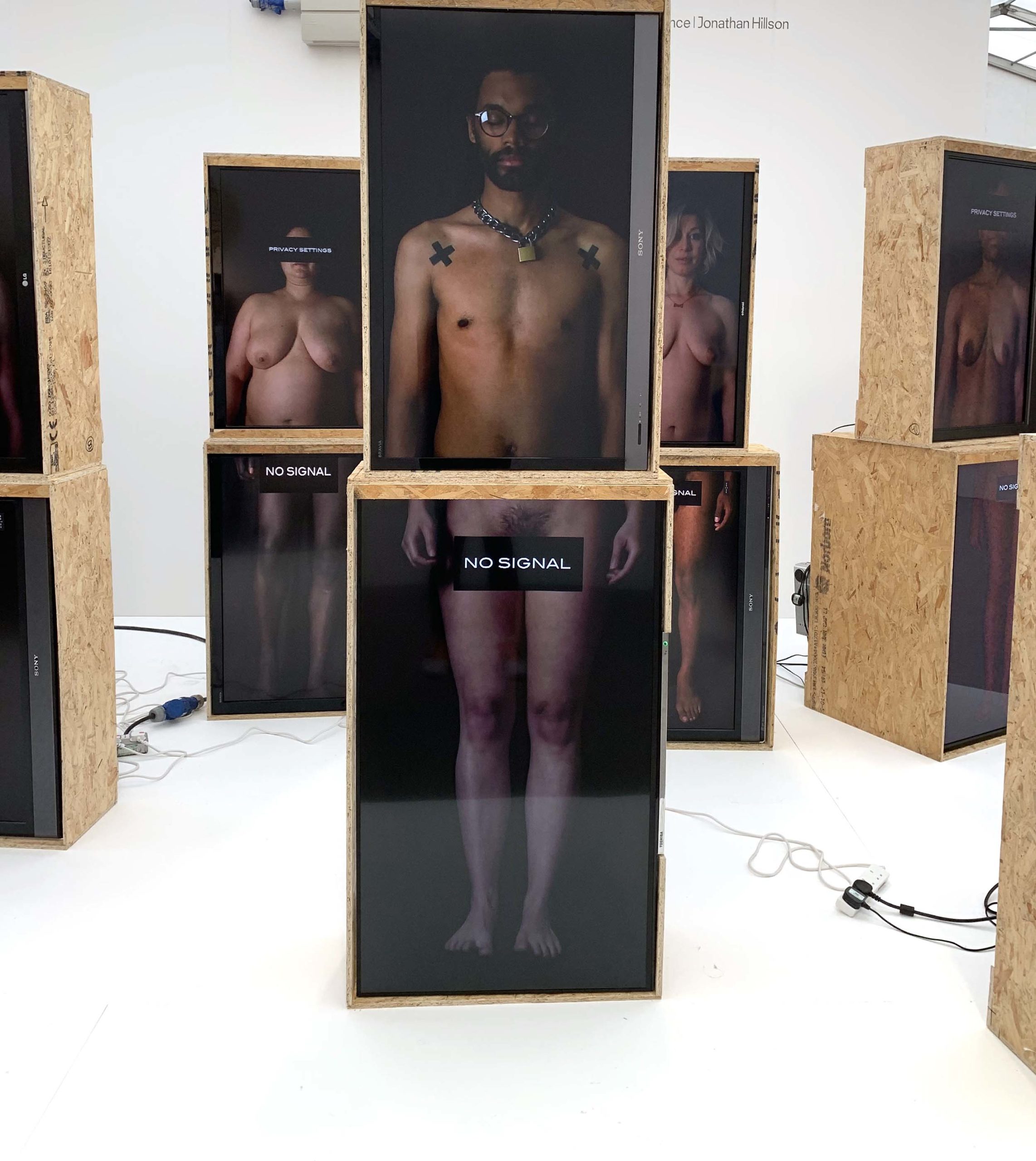
Your installation We are Human seems to set up a conversation encompassing diversity and body image. How did We are Human come to be and what has been the reaction from viewers?
We are Human is a continuation of a previous work called I am Human. It stands strongly by the idea of equality and diversity and a belief in acceptance.
The works hint at this, sometimes in big ways and sometimes less obvious ways but the work overall has meaning, from the images displayed on the screens to the position of the work and the type of material used in its physical construction.
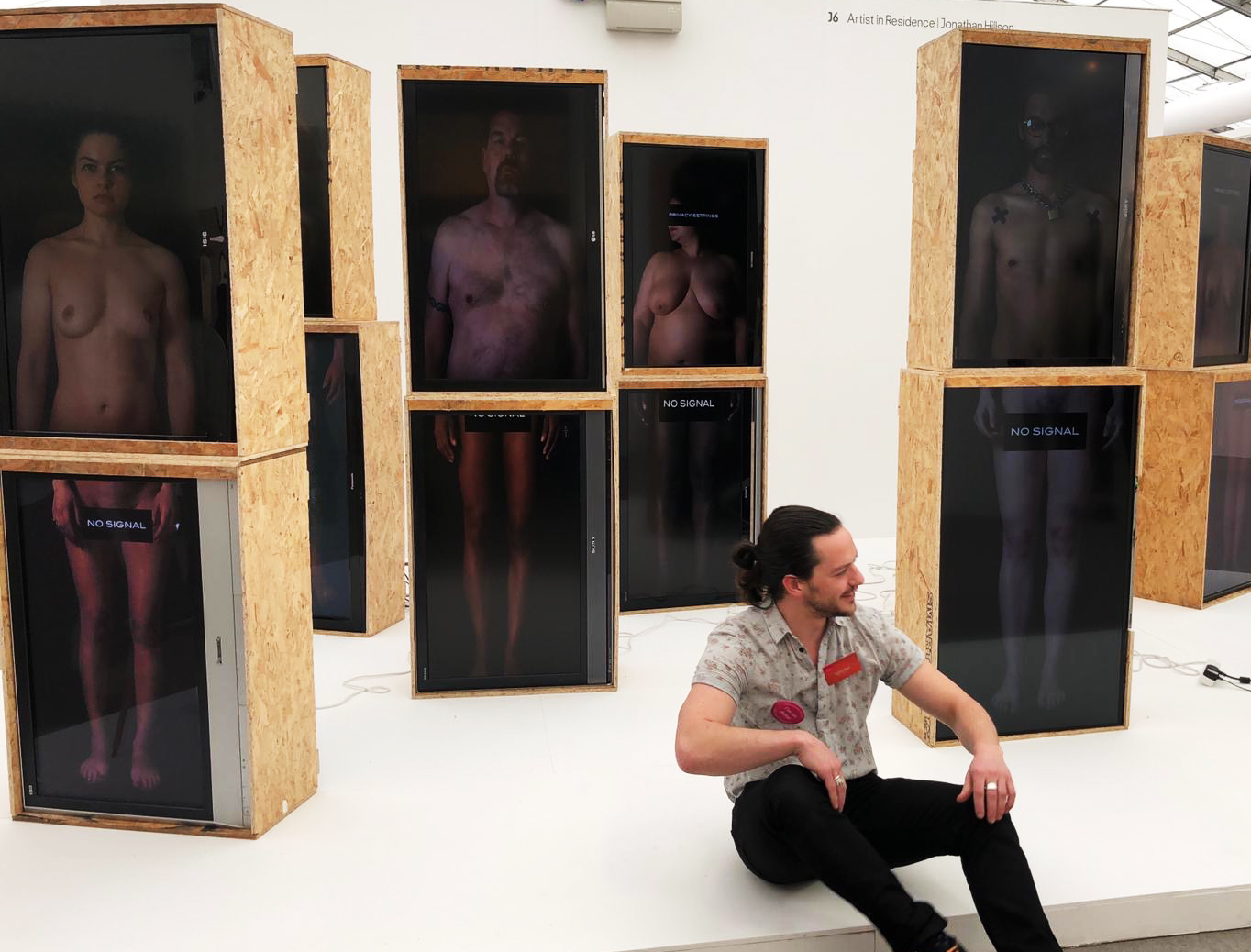
All of it is trying to ignite a conversation with the viewer, encouraging them to question what they ‘know’ or to look deeper into the idea of what it means to be human.
We are Human was created as a follow on from I am Human looking at the human caravans that have and still do travel across vast distances from one place to another in the hope of prosperity and/or to flee persecution – sexual, racial, political, religious, etc.
These caravans are a broad representation of humanity and its differences, but first and foremost they are all human.
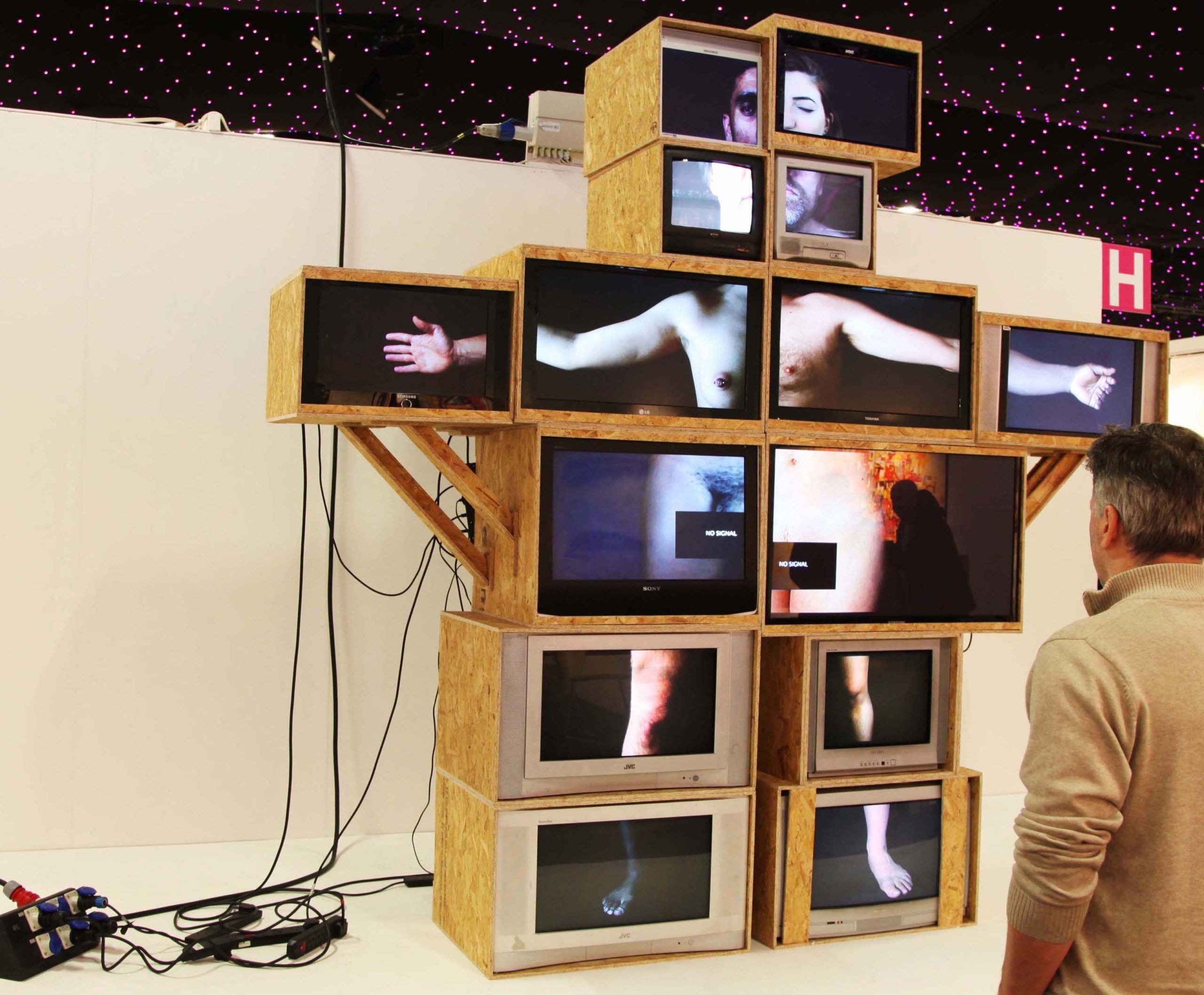
The sociologist Judith Butler once famously said that gender is a performance and that drag makes this plain to see. What are your thoughts on gender as performance?
For want of a better word, our lives are our own performances, filled with emotion, twists, plots, love and loss.
We enact upon our lives in many different ways, showing the world who we are, who we want to be, how feel, and sometimes how we don’t. Our genders are part of our lives and a part of who we are; some people use this as an expression of their feelings or thoughts, sometimes as an escape or as a way of creating/being who they truly want to be.
You work across different mediums but your focus is mainly on video. What draws you to this medium? How does it sit alongside your other work?
I started off as a painter and when I was younger some of my favourite works were by Caravaggio. His use of black spaces, normally seen as negative but created as a positive always intrigued me.
With video I found I could show multiple versions of the static image of chosen paintings at a point in time, looking at the before and after moments, showing how subject matters develop over a short period of time.
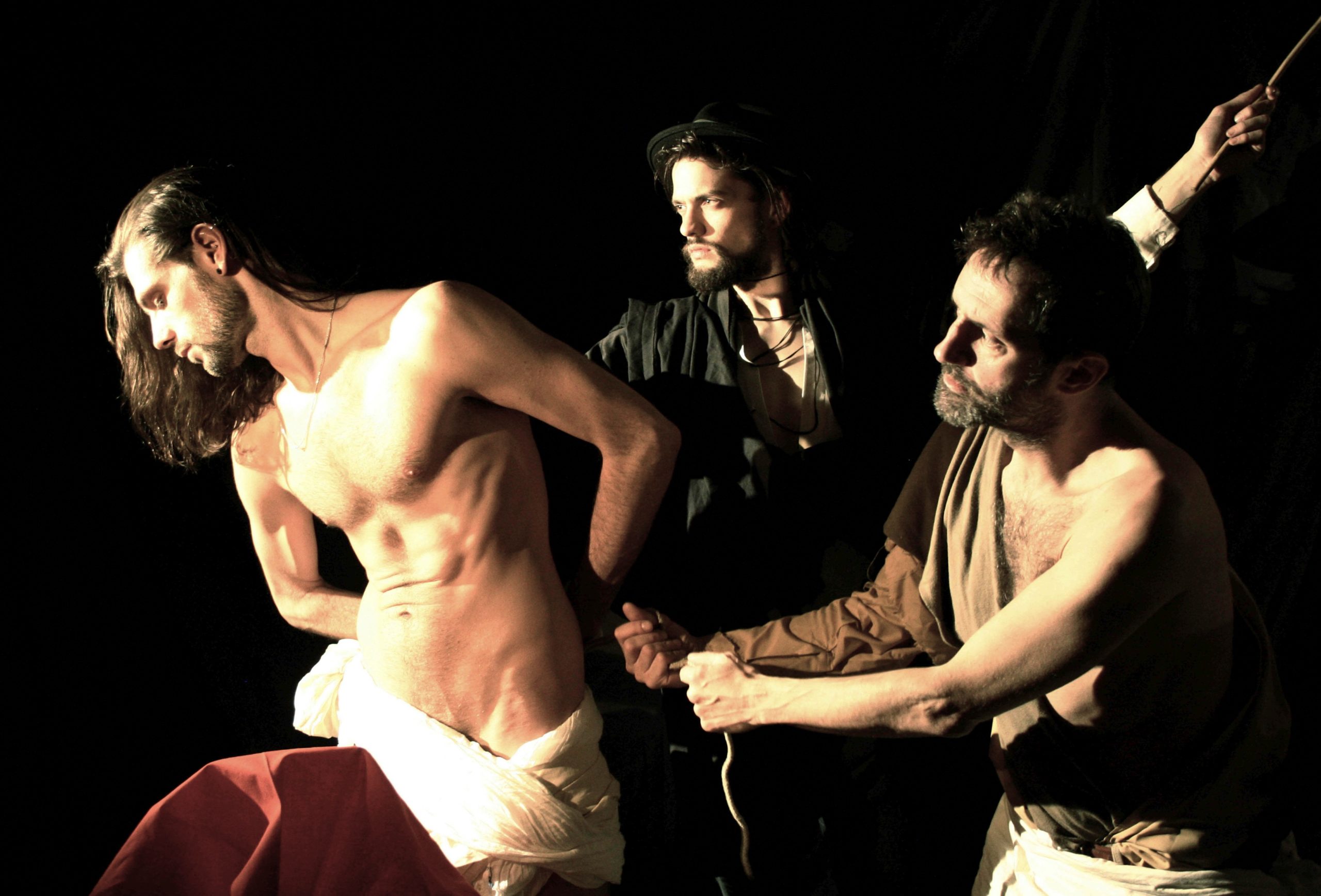
I use slow motion video a lot in my works and it enables me to pick up and point to moments that may seem fleeting and missed, and in doing so to really let the viewer consider what they are seeing and how time is relative to each of us individually and how that moment may be interpreted.
While combining a style from the past with a medium of the present and future, I feel that at times I am in a collaboration with the past masters, showing thousands of different pictures that are created by the slightest of movements, creating new images for the viewer to explore and examine. The slow motion gives the viewer time to reflect on the images.
What are the key challenges that you have encountered working with video?
Video is still a new medium but it is constantly gaining traction year on year and is becoming a staple within a lot of artists’ bodies of work. That said, finding galleries that are interested in showing video art is always tricky.
Video is hard to sell, display, to keep up to date and to secure from fraud/copying. But it is happening; there are galleries of all sizes showing video artworks. Recently the Royal Academy had a huge exhibition of video artwork by Bill Viola alongside the old master work of Michelangelo.
There are technical issues and these always seem to happen, but they are just part and parcel of the medium. It is all about perseverance and making things happen, pushing forward and doing what you have to with belief in your work and its message.
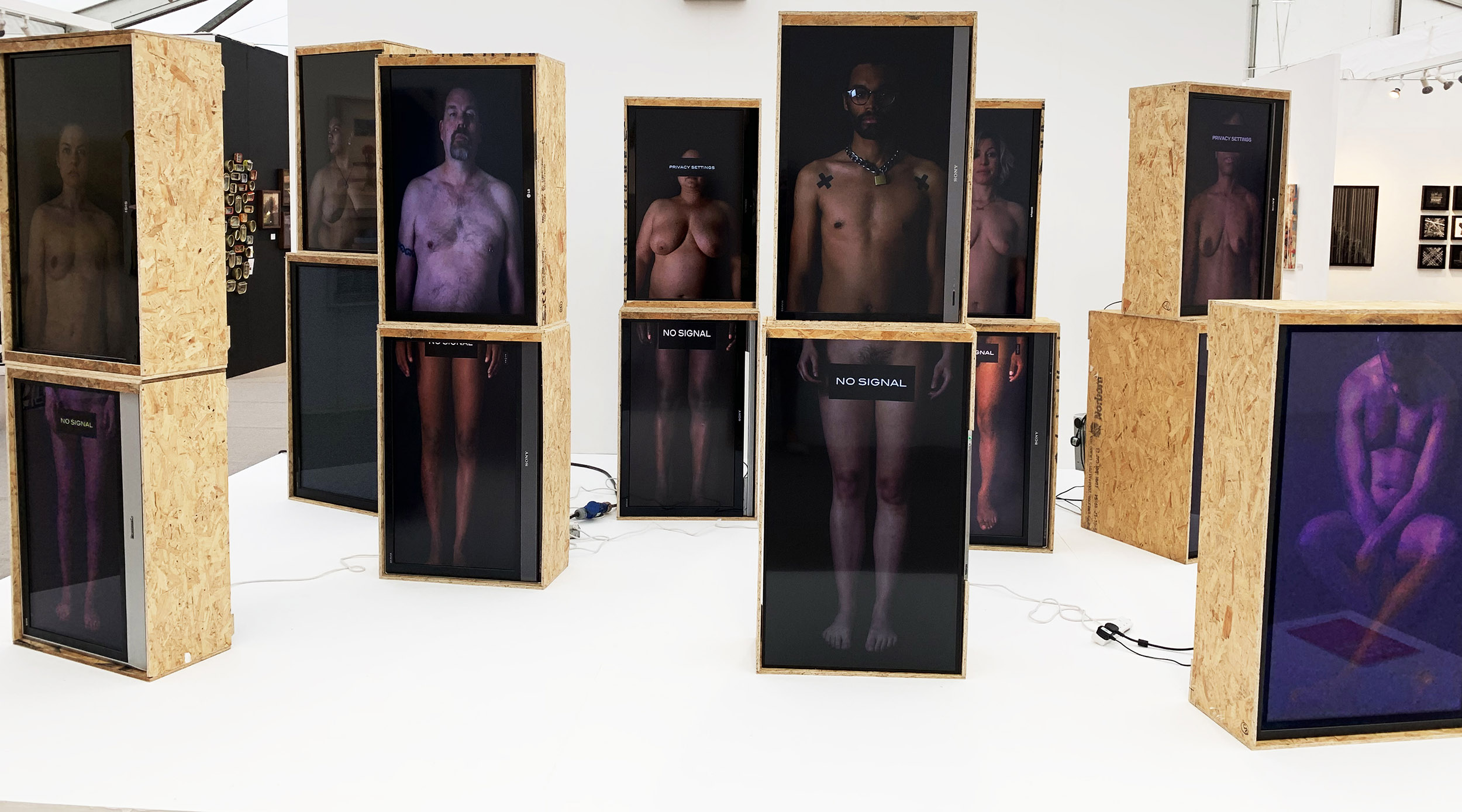
You won a Rowley Award; does this type of recognition help and if so, how?
The Rowley Award gave me a sense of validation, namely that what I was doing as an undergraduate was of merit. I’m not sure how others view it or if it has helped. I don’t actually mention it that often at all as there have been other achievements since then such as being an artist in residence at the Affordable Art Fair 2019.
But at the time it gave me a confidence boost and encouraged me to continue.
There’s currently a growing mainstream discourse around toxic masculinity’. What are your thoughts on this?
I think engaging with the idea of ‘toxic masculinity’ is important! The idea that ‘boys will be boys’ is just an excuse for pardoning or explaining unacceptable behaviour and a lack of taking responsibility.
‘Males’ are not predetermined to be a certain way. Masculinity or gender norms, more broadly, are determined by society and hopefully people will challenge simplistic binaries.
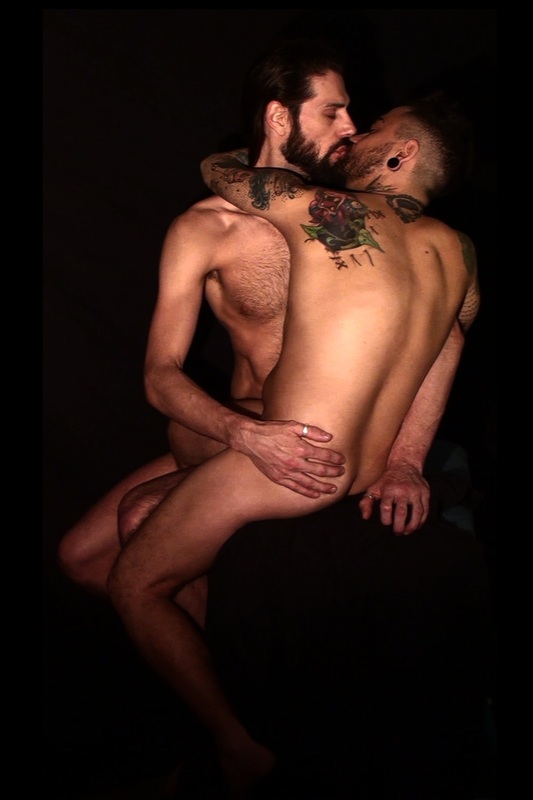
What’s next for Jonathan Hillson?
I will be showing part of the We are Human
installation at the Pride Exhibition, held by Creative Debuts in Shoreditch and I will hopefully be part of the Affordable Art Fair’s Recent Graduates 20th anniversary exhibition in the autumn.
The Pride Exhibition will run from 4 to 31 July 2019 at Adidas Originals Flagship,15 Hanbury Street, Spitalfields, E1 6QR.
Follow BLOW! Magazine on Instagram here.

